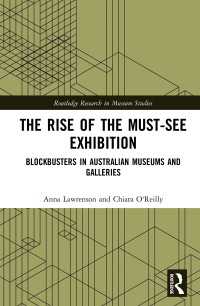Full Description
While contemporary European universities are often imagined to be a forward-thinking environment fostering acceptance and inclusivity, universities can be crucial sites for the reproduction of oppression. As modern universities diversify, they increasingly become the first site where young people are confronted with diversity, leading to ignorant biases and, sometimes, targeted violence. In Addressing Hate Crime and Incidents in Neoliberal Universities: An Examination of Universities' Policies, criminologist Kahyeng Chai takes readers on a behind-the-scenes examination of prejudice in modern higher education, covering numerous hot-button issues including sexism, islamophobia, racism, misogynoir, homophobia, and antisemitism.
Chai tackles this thorny topic through a thorough analysis of various national studies, news reports, and academic research, from the landmark study conducted by the National Union of Students in 2011 to the '2019 survey conducted by the Equality and Human Rights Commission. Despite laudable progress across the English higher education sector, a lack of clarity around reportable behaviours, understanding towards students' experiences of racial harassment, and awareness among students of such policies means the extant policies have room for improvement. Chai, however, establishes a new, effective policy for addressing students' experiences of hate crime and incidents, utilising an innovative new theoretical framework: institutional critical victimology.
Packed with fieldwork, policy analyses, and rock-solid next steps, Addressing Hate Crime and Incidents in Neoliberal Universities provides unique insights and guidance on how modern higher education institutions globally can learn, adapt, and grow in the modern era.
Contents
Part 1. Context
Chapter 1. Understanding hate crime, hate incident, and microaggression
Chapter 2. English higher education sector: A public or private good?
Part 2. Framing the study
Chapter 3. Institutional critical victimology: A new theoretical framework
Chapter 4. Methodology
Part 3. Examining English universities' policies
Chapter 5. Policy structure and content
Chapter 6. Policy discourses
Chapter 7. Power dynamics and agency of policy actors
Part 4. Way forward
Chapter 8. Defining policy effectiveness
Chapter 9. Potential of restorative justice
Chapter 10. Conclusion and recommendations
-

- 電子書籍
- ふんわり、もちもち。 せいろで蒸しパン…
-

- 洋書電子書籍
- The Rise of the Mus…






